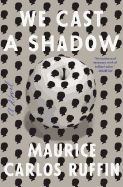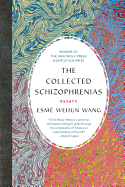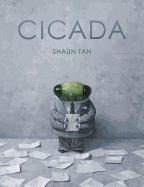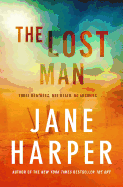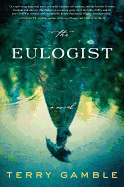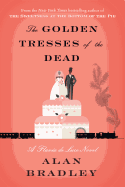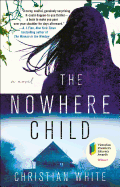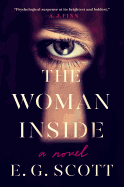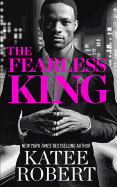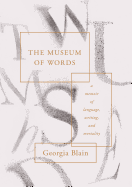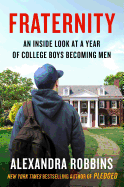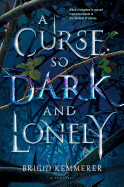Week of Tuesday, February 5, 2019
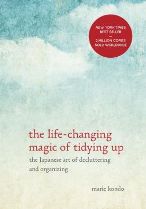
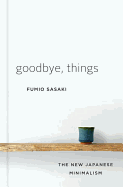 In Goodbye, Things (Norton, $21.95), Japanese editor Fumio Sasaki recounts his experiences getting rid of nearly everything he owned (including his bed). In Year of Less (Hay House, $15.99), finance blogger Cait Flanders documents her one-year experiment with not shopping for anything beyond the absolute essentials (like groceries). Both accounts are drastic, but can provide inspiration for any reader desperate to declutter (even if not to such extremes). Glenn Adamson's Fewer, Better Things (Bloomsbury, $27) drives home a similar lesson using a different approach. Adamson encourages readers to reconsider things themselves: their purpose, their craftsmanship, their use. Perhaps more meaningful connections to the things we choose to keep will remind us that there is more to life than the number of things we have.
In Goodbye, Things (Norton, $21.95), Japanese editor Fumio Sasaki recounts his experiences getting rid of nearly everything he owned (including his bed). In Year of Less (Hay House, $15.99), finance blogger Cait Flanders documents her one-year experiment with not shopping for anything beyond the absolute essentials (like groceries). Both accounts are drastic, but can provide inspiration for any reader desperate to declutter (even if not to such extremes). Glenn Adamson's Fewer, Better Things (Bloomsbury, $27) drives home a similar lesson using a different approach. Adamson encourages readers to reconsider things themselves: their purpose, their craftsmanship, their use. Perhaps more meaningful connections to the things we choose to keep will remind us that there is more to life than the number of things we have.
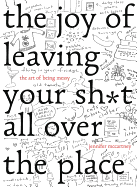 For a long while, I'd held on to the idea that minimalism was inherently cold and distant, picturing black-and-white functional furniture and sparsely decorated spaces. Cozy Minimalist Home (Zondervan, $24.95) reminds us that minimalism does not have to be ascetic--it can simply be a way of living. And if that way of living isn't for you? Well, there's always The Joy of Leaving Your Sh*t All Over the Place (Countryman Press, $14.95), which is exactly what it sounds like: a slightly absurd (if still heartfelt) response to the book that started this whole decluttering trend. --Kerry McHugh, blogger at Entomology of a Bookworm
For a long while, I'd held on to the idea that minimalism was inherently cold and distant, picturing black-and-white functional furniture and sparsely decorated spaces. Cozy Minimalist Home (Zondervan, $24.95) reminds us that minimalism does not have to be ascetic--it can simply be a way of living. And if that way of living isn't for you? Well, there's always The Joy of Leaving Your Sh*t All Over the Place (Countryman Press, $14.95), which is exactly what it sounds like: a slightly absurd (if still heartfelt) response to the book that started this whole decluttering trend. --Kerry McHugh, blogger at Entomology of a Bookworm
We Cast a Shadow
by Maurice Carlos Ruffin
The racist world created in Maurice Carlos Ruffin's provocative near-future novel We Cast a Shadow is disturbing but not far-fetched.
The novel is narrated by an unnamed black father who lives in an unnamed city in the American South. Though in the recent past race relations appeared to be improving, things have deteriorated quickly between the city's poor black inhabitants and its more affluent white majority. The father is a lawyer who is married to an activist white woman named Penny. They have a young biracial son named Nigel.
The racism here operates on many levels. The little things add up. The narrator is mistaken for waitstaff, even a mugger. His coworkers of color are obsessed with whiteness, getting plastic surgery to change their noses and lighten their skin. The narrator is added to his law firm's diversity committee after beating out other black candidates in an outlandishly racist competition. The more speculative yet still realistic aspects of the book include a dreadlock ordinance that allows police to cut off the dreads of African-Americans, intrusive police patrols wherever black people have moved into the white suburbs and even deportation of some black people.
Ruffin skewers institutional racism with style and wit. But he also reveals the insidious nature of racism and the complex psychology of the marginalized: the narrator is so obsessed with whiteness that he begins expensive skin treatments for his own son. We Cast a Shadow boldly explores race in America, and Ruffin tackles his subject matter with lively prose and an entertaining plot. --Scott Neuffer, writer, poet, editor of trampset
Discover: A black father takes desperate measures to protect his son from racism in this hard-hitting speculative novel.
The Lost Man
by Jane Harper
Jane Harper's The Lost Man (The Dry, Force of Nature), her third novel and first standalone, opens with a mesmerizing description of a lone headstone marking the grave of a stockman in Australia's desolate outback. A bit of history is provided about the person supposedly buried there, before Harper moves in for a closer look that puts a chill in the desert heat: there are fresh scrapes in the dust surrounding the headstone.
They were made by Cameron Bright, a local resident whose body has just been found there. It's clear from the marks the man did not die peacefully, having dragged himself around the headstone, chasing the tiny shade it provides from the punishing sun. "The circle in the dust fell just short of one full revolution. Just short of twenty-four hours."
Cam is the middle of three brothers; Nathan, the eldest, narrates Lost Man as he looks into his brother's death. How did Cam get to the grave? Why was his car, fully functioning and stocked with supplies including food and water, parked nine kilometers away? Nathan's investigation unearths not only clues to Cam's death; it brings up family secrets and long-held pain from Nathan's own isolation. Through it all, the stark landscape is a force to be reckoned with. When Nathan's mom asks if he believes the area is haunted by lost children crying for their mothers, he answers no because "if that were true, the outback air would howl so loud the dust would never settle." Lost Man is quietly unsettling, in a hypnotic and heartbreaking way. --Elyse Dinh-McCrillis, blogger at Pop Culture Nerd
Discover: A man investigates his brother's death under mysterious circumstances in the Australian outback.
The Eulogist
by Terry Gamble
Olivia Givens, narrator of The Eulogist, remembers life on the Ohio-Kentucky border in the pre-Civil War years. Terry Gamble's third novel (after Good Family and The Water Dancers) spans most of the 19th century and presents a bleak picture both of the reality awaiting hopeful immigrants and the brutal fate of Africans, enslaved or free.
Livvie begins her tale at age 86, recalling the poverty that compelled her parents and their three children to leave northern Ireland for a perilous crossing and a fresh start in Cincinnati, "the Queen of the West." In 1819, the city was a "mosquito infested backwater," and the Givenses' luck plummeted further there. Soon the children are on their own, and The Eulogist follows the family members' intertwined lives. James, the cerebral one, builds a successful candle-making and marketing business. Erasmus, the attention-seeker, takes up preaching. His self-indulgences thwart his efforts, but his evangelism is popular and creates opportunities. As a woman, Livvie has limited choices, but her strengths and defiance of tradition are critical to her brothers' survival. And, despite their differences, the three take roles in the abolitionist movement, using their means, wit and bravery to bring slaves to Cincinnati and beyond.
In Gamble's West, cholera, floods and lawlessness are prevalent, though extravagance, culture and education are also enjoyed or within reach. (The quest for the finest millinery is a recurring theme and adds levity.) In the last pages, Livvie reveals the complete family tree, a genealogy that invites reflection on America's roots. --Cheryl Krocker McKeon, manager, Book Passage, San Francisco
Discover: In 1819, an Irish immigrant family settles in Cincinnati and struggles to survive poverty and the dangers of life in a border state.
Mystery & Thriller
The Golden Tresses of the Dead
by Alan Bradley
In The Golden Tresses of the Dead, the 10th entry of the Flavia de Luce series, the 12-year-old sleuth and chemistry wunderkind is beginning anew. She and Dogger, her father's former butler, have set up a private detective agency together: Arthur W. Dogger and Associates. Dogger's name goes first since Flavia is still a child and many people don't take her investigative abilities seriously.
Still, the agents rapidly become involved in multiple cases. First, at the wedding of Ophelia, Flavia's sister, when a human finger is found in the wedding cake. Next, an odd woman named Mrs. Prill, heir to the Brocken's Balsamic Electuary fortune, hires Dogger and Flavia to find some missing letters. But there's something strange in how Mrs. Prill speaks of her father, a famous homeopathic doctor, and it sends Flavia and Dogger off to meet with him at his nursing home. Along the way, they find clues to the source of the finger found in Ophelia's wedding cake.
With his usual understated style, Alan Bradley (The Grave's a Fine and Private Place, The Sweetness at the Bottom of the Pie) has created an engaging mystery that keeps Flavia too busy to think much about recent events in her life, including her pesky cousin Undine's arrival. Instead, she is up to her usual tricks, using chemistry to analyze the finger along with a surprising variety of mysterious substances. The chemical details, quaint English village traditions and midcentury charm all add up to make The Golden Tresses of the Dead a delightful novel. --Jessica Howard, bookseller at Bookmans, Tucson, Ariz.
Discover: Flavia de Luce, a chemistry prodigy, uses her talents to help solve the unnerving case of a human finger found in her sister's wedding cake.
The Nowhere Child
by Christian White
Who took two-year-old Sammy Went? And now, 30 years later, could she still be alive? These are the questions that drive Australian author Christian White's propulsive debut novel, The Nowhere Child. This gripping mystery moves back and forth in time: between 1990, when Sammy Went was kidnapped from her home in Manson, Ky., and the present day, when Kimberly Leamy, living in Melbourne, Australia, learns she may actually be Sammy.
That revelation comes from James, a grown man claiming to be Sammy's brother, who tracks down Kim after decades of searching for his lost little sister. From there, the novel unfolds in a number of unpredictable twists and turns. Kim embarks on a geographical and psychological journey as she investigates her family history and uncovers disturbing facts that bring her to Kentucky.
White is a sparse but talented writer, his sharp lines cutting the page like knives. With few details he paints vivid scenes: "Ellis squinted into the dark of the house. A small woman stepped outside and into the light, can of beer in one hand, cigarette in the other." Sometimes his scenes are so striking they read like frames from a movie, which makes sense, because White is also a screenwriter working on the television series Carnivores with Matchbox Pictures.
Deftly plotted, with believable characters, The Nowhere Child is a satisfying mystery by a talented new voice in the genre. --Amy Brady, freelance writer and editor
Discover: In this smart debut mystery, a woman living in Melbourne, Australia, discovers she may have been abducted from Kentucky almost 30 years earlier in this smart debut mystery.
The Woman Inside
by E.G. Scott
Fans of A.J. Finn's The Woman in the Window and Gillian Finn's Gone Girl will delight in discovering E.G. Scott's The Woman Inside. It is a delectably devious and riveting entry in the genre of twisty mysteries with unreliable first-person narrators. The Woman Inside has a handful of narrators, all offering compelling but conflicting tales. From the outside, Paul and Rebecca have an ideal marriage and happy home in a wealthy area of Long Island, N.Y. But both are hiding secrets from each other. Rebecca, a wildly successful pharmaceutical sales rep, is addicted to opioids. And she's beginning to suspect that Paul (who has just lost his job) is having an affair. Is the other woman Rebecca's boss's wife or their unstable and unhappily married next-door neighbor? It's hard to keep secrets when both Rebecca and Paul are inveterate liars.
When someone ends up dead, the two have to join forces to bury the body. But when the grave is later discovered, it contains a different body. From there, the twists keep coming. Even mystery fans who pride themselves on figuring out twists in advance will find themselves on a virtual roller-coaster of sharp turns and surprise reveals that keep coming until the final chapter.
E.G. Scott is a pseudonym for two writers, Elizabeth Keenan and Greg Wands, who have individually written plays, screenplays and short stories. The duo's debut is an intricately plotted, multi-twist mystery with a refreshing deadpan sense of humor. --Kevin Howell, independent reviewer and marketing consultant
Discover: With multiple unreliable narrators, mystery fans will have a sensational time trying to stay one step ahead of The Woman Inside.
Romance
The Fearless King
by Katee Robert
Journey King excels in her position as COO of her family's company, Kingdom Corp, managing complex day-to-day operations while wearing killer heels. Frank Evans is no stranger to contract negotiations, business mergers and hostile takeovers as the successful former underdog who now owns half the city. In The Fearless King, the second book in the Kings series by RITA finalist Katee Roberts, they may enjoy each other as friendly eye candy, but can't forget they are competitors for status and information in the cutthroat business world. That is, until Journey's father, Elliott, waltzes back into Houston with a plan to destroy Kingdom Corp from the inside out, and she turns to the only outside source she can trust for help.
Though Journey's worked hard to put her abusive childhood behind her, one meeting with her father leaves her a quivering mess. Getting the protection she needs means she needs Frank, the king of information. Both underestimated and dismissed--Frank due to his race, Journey due to her gender--they join forces in a negotiation neither expected. When Frank pretends to be Journey's boyfriend to get close to the company, the two discover they have more in common than just finding out what Elliott is up to. As things heat up, where does the pretending end and true feelings begin, and can they figure it all out while coming up with a counter-strategy to save Kingdom Corp before it's too late? --BrocheAroe Fabian, owner, River Dog Book Co., Beaver Dam, Wis.
Discover: Two business rivals, matched in wits, passion and emotional scars, must let down their guards and trust each other in order to save one's company.
Biography & Memoir
The Museum of Words: A Memoir of Language, Writing, and Mortality
by Georgia Blain
In 2015, Georgia Blain (Between a Wolf and a Dog) was diagnosed with a tumor in the language center of her brain. The Museum of Words is her memoir of the time after, as she comes to terms with her own mortality and the off-balance feeling of struggling with words, when writing was both her career and her identity. "I felt as though my speech was impaired to the same extent as if I were trying to dress myself with one hand tied around my back," she writes. Meanwhile, Blain watches two other writers who were close to her lose their grip on words--her mother, Anne, who suffers from Alzheimer's, and her friend Rosie, who endures the same type of glioblastoma as Blain's. She looks to these women, as well as her daughter, to contemplate how language functions in their lives as writers, readers, travelers and children.
Blain, who died in 2016, recognizes how her story falls into a history of other cancer memoirs, including those by Cory Taylor, Jenny Diski and Tom Lubbock. Some of her book's most clear-eyed, resonant passages are when Blain examines how difficult it is to capture reality when writing about oneself: "You know you are creating a fiction.... The line between the story of yourself and your actual self becomes hard to navigate." She notes the paradox of writing about life while trying to live it, a perspective that perhaps comes only from looking back from the end. --Katy Hershberger, freelance writer and bookseller
Discover: A posthumous memoir in which a novelist with a brain tumor mourns the end of her life and the loss of her mastery of words.
Social Science
Fraternity: An Inside Look at a Year of College Boys Becoming Men
by Alexandra Robbins
In Fraternity: An Inside Look at a Year of College Boys Becoming Men, investigative journalist Alexandra Robbins (Pledged: The Secret Life of Sororities) interviews students across the spectrum of Greek life. Her goal is to demystify these secretive communities that often dominate social life on college campuses.
The stories of two students in particular, Oliver and Jake, showcase the merits and pitfalls of fraternity membership. Oliver is chapter president of Phi Epsilon. His experience as a leader and fraternity brother helps him learn what sort of man he wants to be and how he stacks up against the traditional understanding of masculinity. Jake, a freshman undergoing a grueling pledge process at Zeta Kappa, craves the social bonding of brotherhood but struggles with aspects that are less desirable to him: the forced drinking, the constant partying and the time he has to spend away from his studies to prove his commitment to the house.
Fraternities are about so much more than drinking and partying, but usually that's all that makes the news. In Fraternity, readers may learn for the first time about Greek chapters that offer safe spaces for those who don't fall into male stereotypes and others that focus on serving minorities and members of the LGBTQ community. These communities promote genuine friendship and self-acceptance; they teach communication skills and encourage emotional sharing. Ideally, the right fraternity fit will bring out the best in a college student, creating strong real-life bonds in place of tenuous digital friendships.
With Fraternity, Robbins helps parents, high school students and college freshmen understand and evaluate a secretive culture that boys are flocking to now more than ever. --Shahina Piyarali, writer and reviewer
Discover: A riveting read for anyone curious to know why such a large percentage of male college students want to participate in Greek life.
Essays & Criticism
The Collected Schizophrenias: Essays
by Esmé Weijun Wang
Esmé Weijun Wang, author of the novel The Border of Paradise, was diagnosed with bipolar-type schizoaffective disorder in 2013. This diagnosis, which replaced her longtime diagnosis of bipolar disorder, explained the periodic symptoms of psychosis, such as hallucinations and delusions, that she first began experiencing years before as a student at Yale. Wang found some comfort in her diagnosis (it provided "a framework--a community, a lineage"). She also understood--from her own experience and from her years working as a lab researcher at Stanford--that its diagnostic criteria are inadequate in capturing the complexity, contradictions and the lived experience of schizoaffective disorder or another of "the schizophrenias."
"To read the DSM-5 definition of my felt experience is to be cast far from the horror of psychosis and unbridled mood; it shrink-wraps the bloody circumstance with objectivity until the words are colorless," Wang writes.
The Collected Schizophrenias is Wang's attempt to do what the DSM-5--the "clinical bible" of mental disorders--cannot. In 13 remarkably well-researched, intimately detailed essays, Wang guides readers on a tour of her own psychological and emotional terrain, grounded in the clinical and cultural context that has shaped it.
The essays range from the investigative to the meditative to the confessional--most of them all three at once. Wang's search for unity may be elusive. She is many different types of "sick girl," and there are many different "schizophrenias"--but her essay collection organizes the confusion, terror and complexity of her experience into an imperfectly cohesive, profoundly illuminating whole. --Hannah Calkins, writer and editor in Washington, D.C.
Discover: In 13 well-researched and moving essays, a deeply insightful and empathetic writer attempts to make sense of her diagnosis of schizoaffective disorder.
Children's & Young Adult
A Curse So Dark and Lonely
by Brigid Kemmerer
For the people of Emberfall, five years have passed since the crowned prince, Lord Vincent Aldrhen, turned 18; for Prince Rhen, it has been decades. "The last... enchantress in Emberfall" cursed him to repeat the same summer, Groundhog Day-style, until he finds love. More than 300 "seasons" have passed, and Rhen has yet to find love, and each has ended with him turning into a murderous beast. It is the beginning of his 327th season and "everything is... the same. Except for the dead. They never come back."
Harper lives in D.C. with her mother, who is dying of cancer, and her brother, Jake. Her father disappeared, leaving the family with the kind of debts that get a person killed. Jake plays "bill collector" for the loan sharks and enlists Harper, who has cerebral palsy, to be his lookout. While on lookout, Harper witnesses an apparent abduction. "I can't do nothing," she thinks, before throwing herself at the man. He subdues her and transports her to a new place: Emberfall. Harper--unwilling, angry--is the 327th potential love.
Kemmerer merges modern sensibilities with an epic love story in this Beauty and the Beast retelling. Rhen, a seeming "pretty, tortured male" stereotype, shows genuine growth as the novel progresses; Harper is fierce, compassionate, loving, scared and defiant from the start. Harper's cerebral palsy doesn't define her--it is just a part of who she is, and she can do anything she wants, thank you very much. Unlike the standard Beauty, she knows what's happening, knows what Stockholm Syndrome is and won't trust this prince until he gives her good reason. It's an uneasy, slow stumble into (possible) love, and Kemmerer makes her point about life pretty clear: "There are no easy choices. None." --Siân Gaetano, children's and YA editor, Shelf Awareness
Discover: This modern YA take on Beauty and the Beast merges Groundhog Day with werewolf stories and badass princesses.
Cicada
by Shaun Tan
More than a decade after his bestselling picture book The Arrival was published, Shaun Tan returns to the immigrant experience with Cicada, a darker, sobering story that highlights the all-too-familiar treatment of seemingly expendable, undervalued foreign workers. His antihero is a short, squat green cicada for whom English is clearly not a first language. His gray suit can't disguise his differences in a gray office filled with similarly gray-suited men (and perhaps one woman). He's been a data entry clerk without a single sick day, making no mistakes, staying late to finish his co-workers' tasks, and yet 17 years have passed without a promotion. He's been labeled "not human" by the human resources department, which means he's banned from using the company bathroom; he doesn't make enough to afford rent and lives in a sliver of "office wall space"; and he's bullied, harassed, even kicked to the ground by colleagues.
And then Cicada finally retires: "No party. No handshake. Boss say clean desk. Tok Tok Tok!" He abandons his cubicle with nothing to show for his loyal efforts: "No work. No home. No money." Alone, he climbs the building's stairs: "Cicada go to top of tall building. Time to say goodbye. Tok Tok Tok!" But even as all hope appears to be lost, Tan delivers an unexpected zinger of a high-flying ending.
In this modern parable for the plight of necessary-yet-unwelcomed foreign workers, Tan exposes their diminished status. That he chooses to present his protagonist as a language-challenged, alien-eyed insect with a hard outer shell and multiple, multi-tasking arms speaks volumes. Shadows and darkness loom across every visually remarkable page. Unsettling and haunting, Cicada is a cautionary tale that unmasks a society that's carelessly complicit, easily arrogant and, alas, disturbingly real. --Terry Hong, Smithsonian BookDragon
Discover: For readers of any age, Shaun Tan's wondrous picture book Cicada highlights the all-too-familiar treatment of seemingly expendable, undervalued foreign workers.
| Advertisement The Primal of Death Must Be Defeated |


